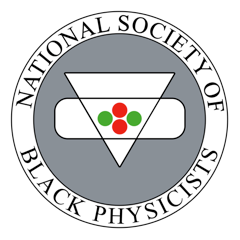Beth Brown Memorial Award Winners for 2021
Dara Norman NSF's NOIRLab
 The AAS supports a prize program at the annual meeting of the National Society of Black Physicists (NSBP): the Beth Brown Memorial Awards. They honor the memory of a vigorous and engaged young astronomer who passed away at age 39 from a pulmonary embolism. Beth Brown earned her bachelor's degree from Howard University and, in 1998, became the first African American woman to earn a PhD from the University of Michigan's astronomy department. She died in 2008 just before beginning a new position as Assistant Director for Science Communication at NASA's Goddard Space Flight Center. Although her time working in the professional astronomical community was short, she had a significant impact on our discipline, not least by serving as a role model for many students from underrepresented groups.
The AAS supports a prize program at the annual meeting of the National Society of Black Physicists (NSBP): the Beth Brown Memorial Awards. They honor the memory of a vigorous and engaged young astronomer who passed away at age 39 from a pulmonary embolism. Beth Brown earned her bachelor's degree from Howard University and, in 1998, became the first African American woman to earn a PhD from the University of Michigan's astronomy department. She died in 2008 just before beginning a new position as Assistant Director for Science Communication at NASA's Goddard Space Flight Center. Although her time working in the professional astronomical community was short, she had a significant impact on our discipline, not least by serving as a role model for many students from underrepresented groups.
Three awards are given: best poster presentations by an undergraduate and a graduate student, and best oral presentation by either an undergraduate or a graduate student. At its recent virtual meeting this month, the recipients of the 2021 awards were announced:
- Best Undergraduate Poster Presentation: Derod Deal (University of Florida), "Investigating NH3 Masers in W51"
- Best Undergraduate Oral Presentation*: Caleb Levy (Colgate University), "Multicomponent Multiscatter Capture of Dark Matter"
- Best Oral Presentation: Kiersten Boley (Ohio State University), "Constraining Hot Jupiter Occurrence around Metal-Poor Stars"
*New this year since we didn't have any graduate student poster presentations (all were talks).
In addition, the judges — members of the NSBP's Astronomy and Astrophysics (ASTRO) Group, which often includes representatives of the AAS Committee on the Status of Minorities in Astronomy (CSMA) — decided to award an Honorable Mention to graduate student Christian Aganze (UC San Diego) for his talk entitled "Scale heights & Ages of Brown Dwarfs in Deep Fields."
We provide each of the three award winners with complimentary AAS membership for one year along with complimentary registration to an upcoming AAS or Division meeting to present their research, plus up to $1,000 to cover the cost of food, lodging, and travel.
The winner of the oral-presentation award also gets invited to give talks at both Howard University and the University of Michigan, focusing on their path into research astronomy. The AAS covers the costs of food, lodging, and travel to Howard University and covers the cost of airfare to Michigan, while the University of Michigan pays the winner's food and lodging expenses.

